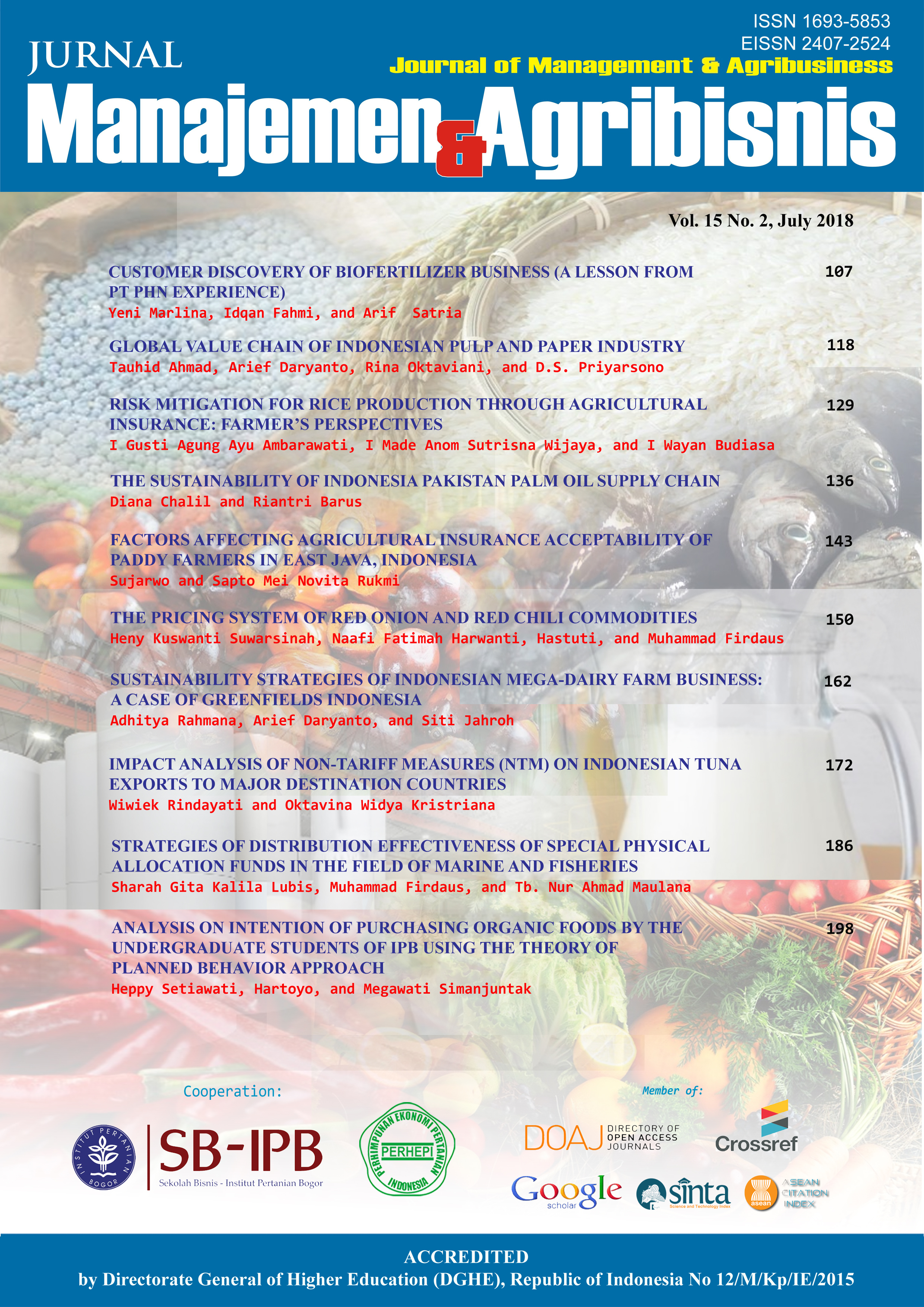Analysis on Intention of Purchasing Organic Foods by The Undergraduate Students of IPB Using The Theory of Planned Behavior Approach
Abstract
This study aims to identify factors that can increase the intention of buying organic foods and its implications in the design of organic food marketing strategy. The main model adopts Theory of Planned Behavior. Six variables were used in this study, namely, health awareness, environmental awareness, attitudes toward organic foods, subjective norms, perceptions of behavior control and organic food purchase intentions. The data to test the research model were collected from 140 respondents and were analyzed using statistical structural equation modeling method. The results of the study indicate that health awareness, environmental awareness, attitudes on organic foods, subjective norms and behavior control perceptions significantly influence the intention of buying organic foods. Furthermore, health awareness and environmental awareness have no significant effects on organic food purchase intention. The results of this study then become the basis in designing strategies to build a positive attitude on organic foods, subjective norms, and perceptions of consumer behavior control of organic foods that is by promoting organic foods through online or on certain events, creating new innovations so that the foods look attractive, and broadening market reach for organic food products to be more easily available.
Keywords: purchase intention, organic food, SEM-LISREL, marketing strategic, Theory of Planned Behavior
Authors
Authors who publish with this journal agree to the following terms:
- Authors retain copyright and grant the journal right of first publication with the work simultaneously licensed under a Creative Commons Attribution License that allows others to share the work with an acknowledgement of the work's authorship and initial publication in this journal.
- Authors are able to enter into separate, additional contractual arrangements for the non-exclusive distribution of the journal's published version of the work (e.g., post it to an institutional repository or publish it in a book), with an acknowledgement of its initial publication in this journal.
- Authors are permitted and encouraged to post their work online (e.g., in institutional repositories or on their website) prior to and during the submission process, as it can lead to productive exchanges, as well as earlier and greater citation of published work (See The Effect of Open Access).

